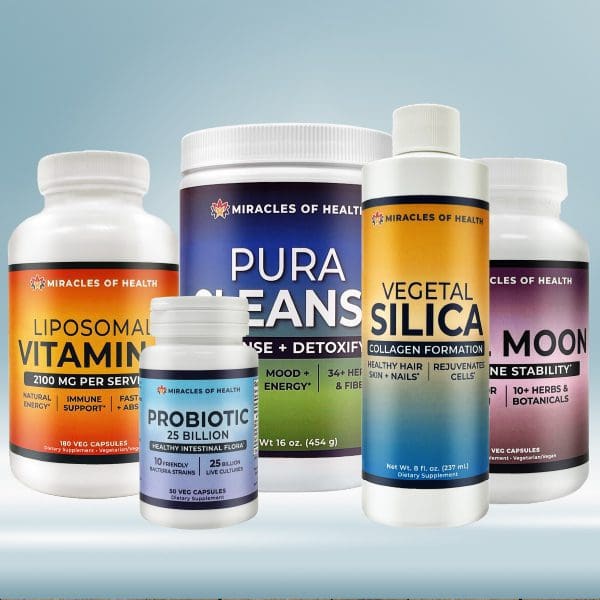It’s absolutely crucial that our body gets the nutrients it needs to function effectively and efficiently. Vitamins and minerals are essential nutrients the body needs to grow, develop, and function normally. The daily stress of pollution, fatty and processed food, and life depletes our bodies of nutrients and it’s up to us to replace these nutrients. We can do this through healthy nutrition, or even better, through healthy nutrition and proper supplementation.
For the average person, it’s difficult to get the proper amount of nutrients needed from food alone. Even the healthiest of eaters might not be getting the recommended amount of vitamins and minerals. It’s hard to judge exactly how much nutrients you are getting from the food you are eating, not to mention certain forms of cooking actually destroy the vitamins and minerals in the food. This is why taking a multivitamin supplement is so beneficial.
Can we get all of the vitamins and minerals we need from our food today?
Not necessarily. Significantly reduced concentrations of vitamins and minerals in today’s produce can be attributed to the fact that the majority of the foods we eat today are mass produced and no longer grown on local or community farms. Food processing and refining is also responsible for measurable nutrient losses that increase our need to supplement with a daily multiple.
Why our food supply is nutrient deficient:
- Current farming methods ~ Burning crops rather than tilling residuals back into the soil, no longer using animal fertilizers that fortify the soil with essential trace minerals, and the use of synthetic chemicals for pest and weed control.
- Mass food production ~ Mass production of food contributes to a lack of nutrients in our diet because vegetables and fruits are harvested prior to being ripe, which does not allow the important antioxidants in the skin and pulp to come to full completion. Produce must be ripened on the branch or vine to achieve their most abundant nutrient levels.
- Foreign grown produce ~ Fruits and vegetables that are grown in other countries and picked prematurely may lack nutrients and the protection from antioxidants. Therefore, if the fruits and vegetables you eat are not local, picked ripe, and delivered to you fresh, then consumed within hours, you are most likely not receiving their full nutritional value, even if you eat plenty of them.
- Processing ~ Food processing and refining has also been shown to reduce vitamins and minerals in our food sources. Take white flour for example; the beneficial part of the wheat berry that is high in fiber, essential fatty acids, and nutrients are removed. The remaining part, which is primarily starch, is then ground, bleached, and fortified with four nutrients
- Cooking ~ Cooking losses of minerals (sodium, potassium, phosphorus, calcium, magnesium, iron, zinc, manganese, copper), was analyzed for various food materials before and after cooking. Results showed that mineral contents of cooked foods in mass cooking were on an average about 60-70 percent of those in raw or uncooked foods.
Eating right by making healthy food choices is always best, yet it is not always practical for everyone. Many of us have busy lives, leaving less time for proper meal planning and preparation, which can help insure that our families and ourselves are getting the daily nutrients to prevent disease. Therefore, including a high quality multivitamin and mineral formula into our daily regimen, can help us meet our recommended daily intakes of these necessary nutrients.
“The purpose of multivitamins isn’t to prevent or cure chronic disease by themselves. The purpose is to correct sub-optimal blood levels of nutrients. That offers a range of benefits. There are studies that show advantages in terms of lowering disease risk, but even if you choose to ignore those, benefits in terms of improved overall health and well-being are, I believe, undeniable.”
~Andrew Weil, M.D.















